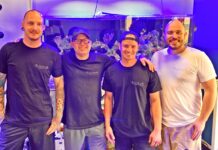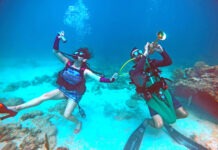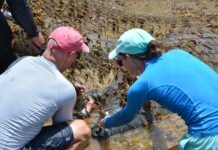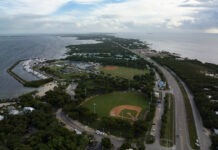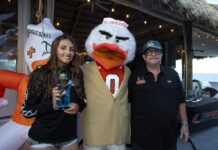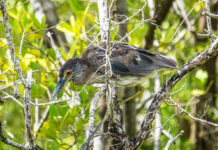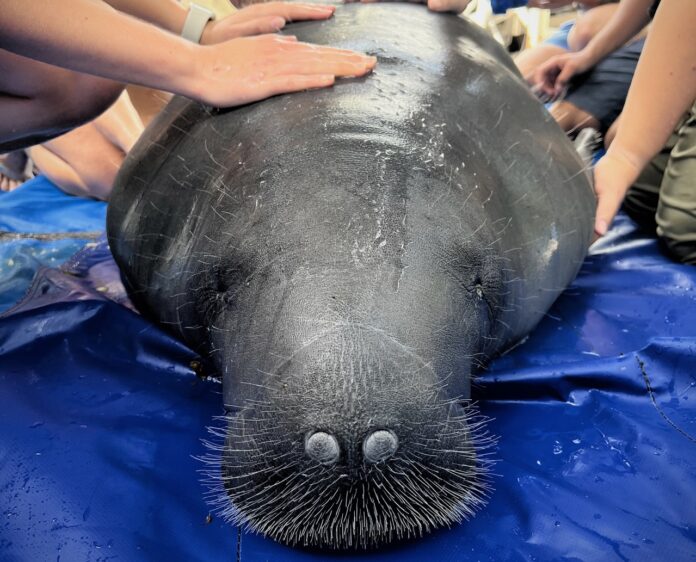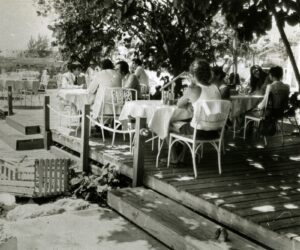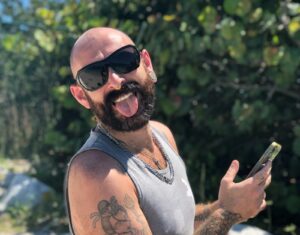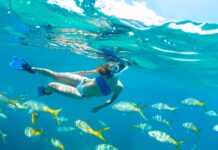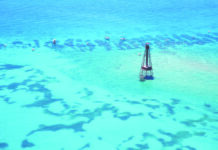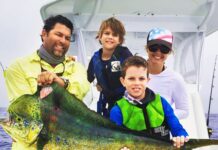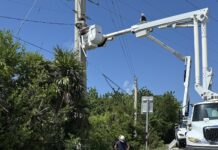By Abigail Haddock
Florida Keys Aquarium Encounters (FKAE) has successfully completed the rehabilitation of two orphaned manatees – dubbed Lil Peep and Maverick. Now a member of the Manatee Rescue and Rehabilitation Partnership (MRP), FKAE provides a manatee rescue team and the only manatee rehabilitation center in the Florida Keys. With the young manatees arriving just last year, their release marks a massive milestone for the aquarium’s on-site rehab program that officially began just over a year ago.
“We knew even before we opened the aquarium that this was something needed here, and that we were interested in being a part of it,” said founder Ben Daughtry.
Lil Peep arrived at Aquarium Encounters with another manatee named Heavy Falcon on Jan. 4, 2022. Both were rescued by SeaWorld after they were found emaciated in central Florida.
After 104 days of rehab, Heavy Falcon made weight criteria and was released in Crystal River on April 28. Since manatees are social animals, Maverick, a rescue from Marco Island, was sent down from his critical care facility at ZooTampa on April 27 to finish his rehab and be a companion for Lil Peep.
Orphaned manatees like Lil Peep and Maverick need to be more than 2 years old, and weigh more than 600 pounds, to be ready for release back into the wild. Now that they have met that criteria, they are two of 13 manatees returning to the wild this week with the help of Brevard Zoo providing transportation.
Aquarium Encounters already has two more manatees coming in for long-term rehab, named Mettwurst and Plunk. Now stable after their rescues, but in need of some weight gain, both will make the trip from SeaWorld Orlando on Feb. 23.
Sea World currently has 38 manatees in its rehabilitation facility, so Aquarium Encounters plays a vital role by providing space for stable animals who still need to pack on the pounds while allowing critical care facilities like Sea World to free up space and staff for more incoming rescues. Mettwurst originally was found orphaned in Crystal River, and Plunk was rescued from cold stress in Captiva.
Here in the Keys, manatees’ main risks come from boat strikes and entanglements. One of the best ways to protect them is to watch out for manatees while boating. Another way to help is by simply leaving them alone, and not trying to feed or water wild manatees.
“Hose watering is a learned behavior,” said FKAE senior marine biologist Kee Bligh. “So don’t teach it to them!”




“Hoses mean docks, and docks mean boats,” added Daughtry. “They don’t need that.”
In order to reduce their dependence on humans and give the manatees the best chance at successfully being reintroduced to the wild, the team is very hands-off in the rehabilitation process.
“They aren’t hand-fed,” said Daughtry. “Staff spend 30 to 40 hours a week caring for them, but hands-on contact is kept to a bare minimum.
“Each manatee eats around 100 pounds of lettuce every week, high quality romaine, and that’s the biggest issue for us,” he continued. “Aquarium Encounters provides 100% of that cost out of our budget. There is no government funding for rehab centers that aren’t critical care, and it’s over $500 a day to feed our animals.”
Donations to Aquarium Encounters’ charity organization, R3EACH, help provide care for rehabilitating manatees and assist in other conservation projects. Those wishing to donate to the organization’s mission may visit floridakeysaquariumencounters.com/product/donation/.
If you see an injured, tagged or deceased manatee, always call FWC at 1-888-404-3922.
